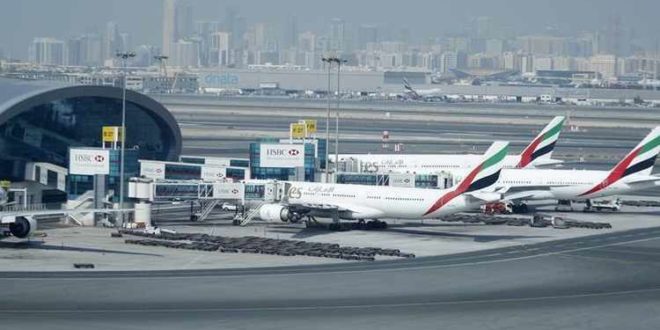Media IN DUBAI, 9th June, 2019 WAM
Emirates SkyCargo has commenced handling pharmaceutical cargo at a new purpose-built facility in Chicago. The facility, dedicated solely for pharmaceutical shipments, is spread over 1,000 sq. metres, with scope for additional expansion and provides comprehensive protection for pharma cargo through temperature controlled zones for acceptance and delivery, pharma cargo build up and break down, storage and direct ramp access.
Developed in partnership with ground handling company Maestro, the facility has a capacity of 15,000 tonnes of pharma shipments per annum.
Nabil Sultan, Divisional Senior Vice President at Emirates SkyCargo in his opening remarks said, “Emirates SkyCargo is committed to the safe and secure transportation of temperature-sensitive pharmaceutical shipments. Having a dedicated facility for pharma at one of our busiest stations for pharma in our network is a big boost to our pharma handling credentials and capability,”
”This was also a unique model wherein we worked closely with the ground handler and were involved in the planning for the facility from the very beginning.”
”Using our learnings from transporting pharma across six continents, we were able to collaborate to make the new pharma facility fit for purpose,” he added.
The facility offers temperature controlled zones (2-8 degree Celsius and 15-25 degree Celsius) for acceptance and delivery, pharma cargo build up, breakdown and storage. The proximity of the facility to the ramp also means that cargo has to spend lesser time in transit to and from the terminal to the aircraft.
The dedicated pharma facility in Chicago is part of Emirates SkyCargo’s broader strategy to enhance protection for temperature sensitive pharma shipments not just at its hub in Dubai but from origin to destination.
With over 8,000 square metres of dedicated pharma storage and handling space, Emirates SkyCargo operates the world’s largest multi-airport GDP certified hubs in Dubai. During the financial year 2018/19, the carrier transported more than 75,000 tonnes of pharmaceuticals through its network.
 Media ININ Economy We Trust
Media ININ Economy We Trust








